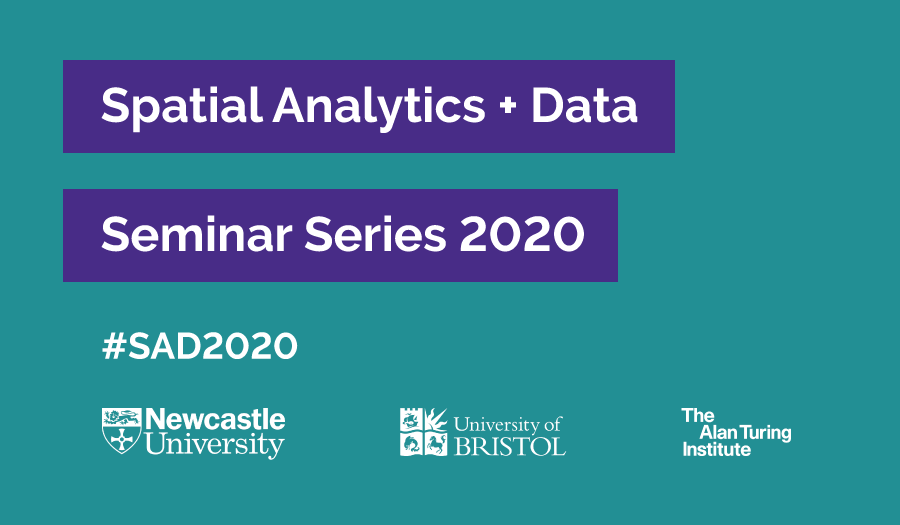October sees the launch of a new seminar series: Spatial Analytics + Data
The new seminar series opens with three sessions in October:
- Post-Pandemic City Futures – Panel and public Q&A
- Invisible Spaces and Global Urban Data Gaps: Machine learning, Earth Observation and Deprived Urban Areas
- Understanding Present and Future Costs of Public Service Provision
We're delighted to be co-curating this series with The Alan Turing Institute and the University of Bristol.
Post-Pandemic City Futures – Panel and Public Q&A
- Spatial Analytics & Data seminar series
- Tuesday 6 October 2020 15.00-16.00 UTC / 16.00-17.00 BST
- Zoom Online
Cities. Has the rumour of their death, post-pandemic, been much exaggerated? Or will the experience of Covid-19 bring long-lasting changes to cities and the people who live in them? To find out, this panel brings together expertise from a variety of perspectives for a conversation on post-pandemic cities--housing markets, employment, transportation, and more are all on the table for discussion.
Invisible Spaces and Global Urban Data Gaps: Machine learning, Earth Observation and Deprived Urban Areas
- Spatial Analytics & Data seminar series
- Dr Monica Kuffer, ITC, University of Twente
- Tuesday 13 October 2020 15.00-16.00 UTC / 16.00-17.00 BST
- Zoom Online
Monika Kuffer is a human geographer working as Assistant Professor at ITC, University of Twente. Her research focuses on urban remotes sensing, in particular monitoring deprived areas such as slums.
Understanding Present and Future Costs of Public Service Provision
- Spatial Analytics & Data seminar series
- Ana Isabel Moreno Monroy, OECD
- Tuesday 27 October 2020 15.00-16.00 UTC / 16.00-17.00 BST
- Zoom Online
Ana Isabel Moreno Monroy is an Economist at the Regional and Rural Policy Unit at the OECD (Paris) and an Honorary Associate at the Geography and Planning Department at the University of Liverpool
This talk describes a method to estimate primary and secondary education costs differences across human settlements. The first step involves simulating school placements using a spatial access optimisation algorithm that relies on road networks and population grids. The second step estimates costs based solely on student counts by using the distributional properties of actual school expenditures as observed in schools in England. We illustrate how the method can be used to understand the impact of demographic change on education provision costs across human settlements under different policy scenarios.
Questions about the events?
For further information or questions, please contact the Newcastle organiser, Professor Rachel Franklin.
About Newcastle Data
One of Newcastle University's Centres of Research Excellence, we aspire to transform research across the University by driving forward the development and application of new methods for extracting value from data. By fostering collaborations with researchers from across the University, we will nurture the development of new methods for extracting value from data, and encourage novel applications of new methods in a variety of domains




